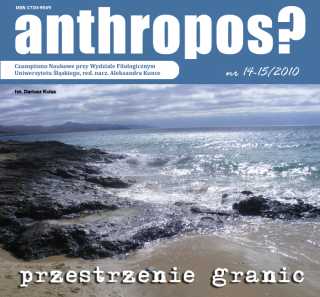Keine Grenzen? O swobodzie wypowiedzi w poezji Mirona Białoszewskiego
Keine Grenzen? About the freedom expression in Miron Białoszewski's poetry
Author(s): Iwona Gralewicz-WolnySubject(s): Literary Texts
Published by: Instytut Nauk o Kulturze i Studiów Interdyscyplinarnych - Wydział Filologiczny - Uniwersytet Śląski
Keywords: literature; poetry; freedom; subjcetivity; expression
Summary/Abstract: The Essay Keine Grenzen? About the Freedom expression in Miron Białoszewski's poetry institute a wide aspect, which is a concern about issue - what exactly the freedom in poetry and for the poet in Białoszewski's creative mean? The Author analyze also the fundamental and basic question - what is freedom for poet and what are its limits - if they are? From the first volume she gave an answer, profession poet should be in common belief to so-called profession free. Off-specification working time and no supervisor make a designer poetry free in strict sense. In fact the freedom poet is also and above all, freedom, which we can see in metaphorical sense. Author confirms, that from the poetry we hope freedom of thought; freedom of expression; freedom of imagination and that matter poetic language is, as well freedom of expression. The Main conclusion shows, that making this freedom any borders is contrary to the nature of poetry at all. On the other hand, poetry seems to be the area activity, which for the man means activity in mental and linguistics sense, where freedom of expression knows no borders. As a result, a sample their designation contests are in fact creative poetic. In other words: where is censorship, there is no poetry. This reflection constitute the idea of borders language, in the sense, which is similarly as borders literary species and species speech. In such a way, it seems - it does not exist at member. Moreover, it is reducing ranges between its varieties: verbal and written, common and literary, and in particular 'universal' and in the main sense - its own. As the result it is building extremely private idiolect, which has become a landmark his poetic creativity. In fact, these 'outside' limits freedom of expression does not have been able to neither scare Białoszewski off, or stop his expression in poetry. On the contrary, points of contact varieties language have commanded him most, because there happened for him what he was interested in the most, as well as it shows his famous poem called Retory. The Last conclusion makes an appeal, that all these examples do not mean, that for Białoszewski there were no limits freedom of expression. As the author has convinced, Białoszewski is experiencing their existence, more than, any users language, certainly including all Polish poets. This is about obviously endogenetic limits, which are the results from the very nature language, the ongoing in his poetry continue drama well knowing under the title As to be here and use on language? The Border issues freedom of expression expose in Białoszewski's creative as higher meta-text floor. The Main question is not only because of what is necessary in the company, or what is not necessary, but it is about, what is speak/write in the way of being poet, which means for Białoszewski - being itself.
Journal: Anthropos?
- Issue Year: 2010
- Issue No: 14-15
- Page Range: 201-211
- Page Count: 11
- Language: Polish

